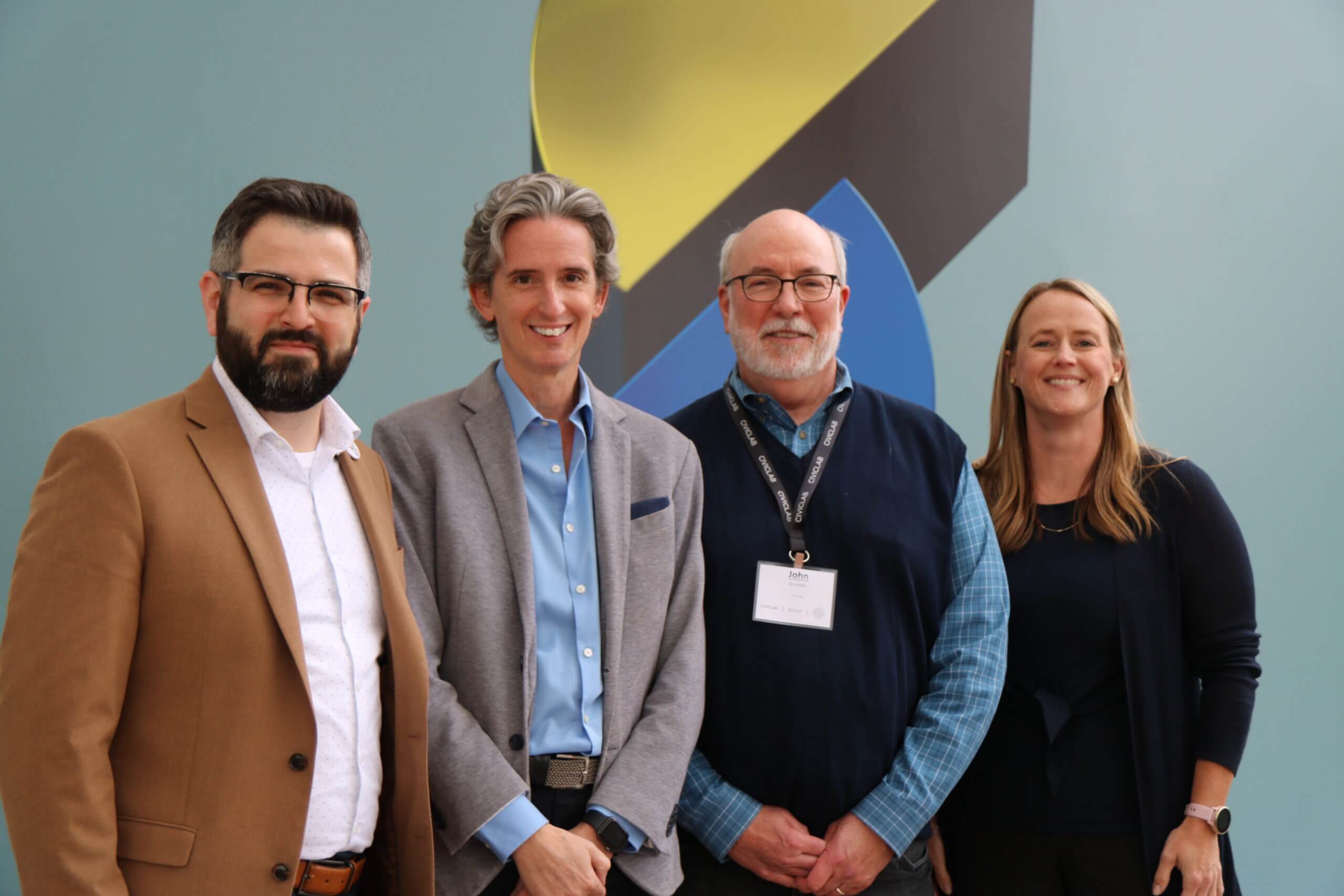About CivicLab
 Led by a team of pragmatic practitioners, CivicLab creates the tools and frameworks that form the underlying foundation for the practice of community collaboration.
Led by a team of pragmatic practitioners, CivicLab creates the tools and frameworks that form the underlying foundation for the practice of community collaboration.
CivicLab teaches collaborative community teams how to better approach complex social problems by redesigning the way they work together. Since our founding in 2012, we have partnered with and served more than 300 communities across the country and have trained more than 14,000 leaders and community stakeholders.
It’s important to know that we do not consider ourselves to be experts or consultants. Like you, we are practitioners, having formed and led many cross-sector collaboratives and initiatives focused on social challenges at the community, regional, and state levels.
The approach we take to our work is both unique and proven. We believe in one guiding idea: When it comes to community collaboration, the process is the product.
Our Stakeholder Engagement Process is a relationship-based, systems-building approach. It is rooted in the idea that when it comes to addressing a social problem, it’s a systems thing, not a single thing. And the “system” is the way we have chosen to work together.
Every community has a process it uses to collaborate, whether it knows it or not. And before things can be made better, a group has to be able to see their process and understand it. As the adage says, if you can’t describe what you are doing as a process, then you may not know what you are doing.
By teaching community teams how to redesign the way they relate to one another and work together, we help our partners build and lead social systems that better serve all people and improve the human condition.

The CivicLab Team
Our team is a small and mighty team of experienced practitioners, designers, and leaders of cross-sector partnerships. With experiences from the private sector, higher education, philanthropy, K12, and the nonprofit sector, the CivicLab team brings its diverse viewpoints to serve and support our partners.
CivicLab is a program of the Community Education Coalition in Columbus, Indiana. Just as CivicLab supports their daily work, the CEC team supports CivicLab through shared back office services including finance, HR, technology, and facilities. This unique arrangement allows CivicLab to remain a lean organization, to share more resources with its partners, and to remain connected to an exemplary community partnership on a daily basis.
The People
Jack Hess, Executive Director
Jack Hess is the co-founder of CivicLab, a nonprofit institute dedicated to advancing the practice of community collaboration. He has partnered with hundreds of communities across the country, teaching collaborative teams how to better approach complex social problems by redesigning the way they work together. Prior to his work with the CivicLab, he was the President of the Columbus Area Chamber of Commerce. Within two years of implementing its new strategic plan, the Columbus Chamber was named the Indiana Chamber of the Year in 2008. One year later, the American Chamber of Commerce Executives (ACCE) presented the Columbus Chamber with the National Chamber of the Year Award.
John Burnett, Executive Vice Chairman for the Community Education Coalition
John M. Burnett, serves as Executive Vice Chairman of the nationally recognized Community Education Coalition (CEC) of Columbus, Indiana. CEC is committed to development of a coordinated learning system linking to economic opportunity and quality of life. He is co-founder of CivicLab, An Institute for Civic Collaboration with his colleague Jack Hess. Burnett is a founder of Southeastern Indiana’s EcO Network (Economic Opportunities through Education). Launched in 2008, the network focuses on educational attainment leading to well-paying jobs. EcO Network has been funded to-date by more than $80 million in grants, including major gifts from Lilly Endowment Inc., and substantial funding by Cummins Foundation, Indiana Department of Workforce Development, and Lumina Foundation. international joint ventures.
Amber Fischvogt, Director
Amber Fischvogt serves as Director of CivicLab. During her tenure, Amber has worked with civic leaders across the country addressing complex social issues such as food insecurity, opioid addiction, family self-sufficiency, talent attraction, student mental health, school safety and security, and financial literacy. Amber has over 20 years of business and community development experience. Prior to CivicLab she managed a wide array of entrepreneurial education and development programs at both a local and national level that served several thousand entrepreneurs annually. She is the facilitator for Leadership Bartholomew County.
Dakota Pawlicki, Director of Talent Hubs
Dakota Pawlicki is the Director of Talent Hubs with CivicLab. In this role, he serves exemplary cross-sector partnerships focused on postsecondary attainment that have met rigorous standards for partnership health, equity, and systems change. He brings his expertise in postsecondary education, collective impact, stakeholder engagement, and change management to a network of nearly 100 partnerships, supporting their efforts to improve the human condition. Dakota also hosts Lumina Foundation’s podcast Today’s Students, Tomorrow’s Talent, which features conversations with newsmakers and leaders in the field of learning after high school. Prior to this role, Dakota was a strategy officer with Lumina Foundation, a senior district administrator at Chicago Public Schools, founder and executive director of a teacher preparation nonprofit, university program administrator, and music teacher. He holds degrees in education and public administration, and lives with his wife Dr. Colleen Pawlicki and dog Otis in Indianapolis.
Working Together
The CivicLab team is looking forward to learning more about your your team’s collaborative work and aspirations. In contrast to the typical “customer-supplier” relationship that so often gets formed in the community consulting space, we would like to propose that we build our relationship in the spirit of a true partnership.
To start, let’s get together to talk about your work, hopes, and aspirations. From there, we can co-design the best way we might work together.
Guiding Principles
Our approach is driven by a set of guiding principles. They are the same principles that we use in our own community and teach to others. Here are some of the guiding principles that have shaped who we’ve become.
- It’s a systems thing, not a single thing.
- Transforming a system is ultimately about building and transforming relationships.
- Improving the system is everyone’s responsibility; and responsibility precedes accountability.
- When it comes to community collaboration, the process is the product.
- If it remains invisible, then it remains unsolvable.
- It’s better to dissolve a problem than solve it.
- It’s our values and relationships that create scarcity, not the lack of resources.
- A system cannot be controlled, but it can be re-designed.
- Start small, think big, aim high.

